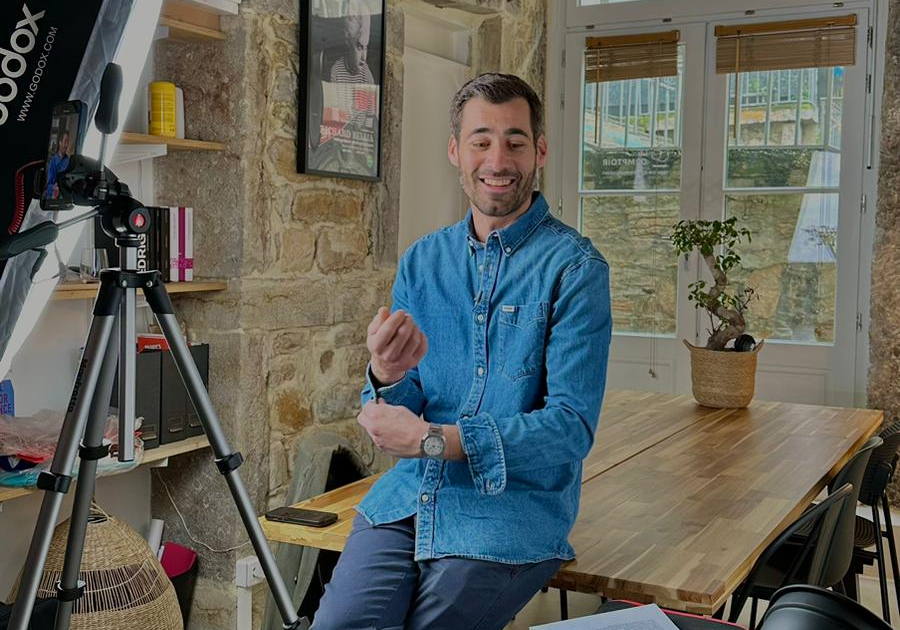Am I going to sound too distant?
Too familiar?
It is a frequent trial and error in social relations.
And no fixed rule seems to definitively resolve this balance between the formal mode and the formal familiarity.
So much so that in certain professional circles, familiarity is now essential.
What should we think?
The linguist Jean Pruvost analyzes this French particularity.
To discover
Crosswords, arrow words, 7 Letters... Free to play anywhere, anytime with the Le Figaro Games app
LE FIGARO.
- Where does this difference between familiarity and familiarity come from?
Jean PRUVOST.
- The origin is Roman, Latin.
It dates back to the division by the Emperor Diocletian in the 3rd century of the Roman Empire between East and West.
Each of the two new Augustus, that is to say emperors, is then assisted by a Caesar.
Legend has it that when one of the four sovereigns addresses the empire, he speaks on behalf of the other three by saying
"we"
.
It is answered by saying
"you"
.
Formal formalities, or at least respect, then gradually developed.
It values the interlocutor.
Do you think the familiarity is a mark of affection?
Not necessarily.
We can deeply love someone whom we address as you.
It is estimated that today 200,000 people use the formal address by being married.
By reading, for example ,
Back-Country
, a novel by Daniel Rondeau, I gradually realized that a very harmonious couple uses the formal address throughout the novel:
"Are you well, my darling?"
The same is true in the magnificent biography of Dominique Bona,
Divine Jacqueline
, where Madame de Ribe and her husband address each other very lovingly for a lifetime.
In family relations, more than 80% of French people also address their in-laws as vous.
Does the familiarity depend on the status of the person or on the circumstances
?
It can represent a
"you"
of equality or else of hierarchy, in the order of knowledge, of responsibilities, for example.
It is unimaginable that an elementary school child of the second degree uses familiarity with his teacher, whereas it is relatively frequent for the latter to use familiarity with his students.
But it also depends on the circumstances, more than you might imagine.
When I was a national education inspector, we quickly got to know each other among colleagues.
To use the usual manner as soon as you found yourself in front of the teachers and the unions.
Same thing on the radio.
Off the air, I'm going to familiarize myself with the host I've known for ten years.
But when the microphone opens, I address it without even having to think about it.
It is a politeness consisting in not excluding listeners who may be shocked by a complicity from which they would be excluded.
"The academician Frédéric Vitoux evokes the ''tutoielitarisme'', this obligation of the familiarity which has something of totalitarianism
Because familiarity can exclude as much as it integrates.
It may happen that the familiarity can be an indirect mark of contemptuous superiority.
There is a famous anecdote about hierarchical evolution.
When François Mitterrand was elected secretary general of the socialist party, one of his early activists who was familiar with him asked him if he could continue like this.
And the future President of the Republic to answer:
“If you want!”
Should familiarity be encouraged?
The important thing is that it is not taxed.
In Quebec in the 1960s, at one point children were forced to use familiar terms with their teachers, and vice versa.
Denise Bombardier recounts in her
Dictionary of Quebec Lovers
(Plon, 2014) having been summoned by the school principal who was trying to understand why her child refused to use familiar terms with his teacher.
This familiarity was also imposed during the French Revolution.
It was supposed to illustrate a perfect equality between all, but it was in reality an impoverishment even a debasement of the relation.
The academician Frédéric Vitoux evoked in a conference in a very judicious way the
“tutoielitarisme”
, this obligation of the tutoiement which, imposed, has something totalitarian.
” READ ALSO – Frédéric Vitoux: “France must resist the invasion of Franglais”
What about automatic familiarity?
It is developing on the side of games, on the side of networks, between young people.
Sometimes he is very unconscious and we don't even ask ourselves the question.
When one is a Christian, in prayers one addresses the Virgin Mary,
“Hail Mary”
, and one addresses God by saying
“Our Father who art in heaven”
.
In November 2021, when Emmanuel Macron went to see Pope Francis, the familiarity surprised.
But that's papal tradition.
Today, spontaneous familiarity exists very easily in the world of radio or television.
It may also come from a precaution that we take by getting as close to each other as possible, by trying to create a careful friendship in a world that is in fact very cruel.
Professional circles have their habits and practices.
Why should the familiarity and formal address be preserved?
The balance or the wise choice between the two constitutes a richness of the language and in no way a poverty.
It is an additional and wonderful nuance of our language.
There is a French art of playing the double system with elegance.
It can also be played with pleasantly, as evidenced by a drawing by Pascal Gros about the book
Le Tu et le Vous.
The art of complicating things
, (Flammarion), by Etienne Kern.
We see a boss with his tie saying to his partner:
"You're fired"
, or
"well... you're fired if you prefer!"
Let's preserve this freedom and this game of familiarity and formality.
Above all, nothing imposed and it's up to us to play...















